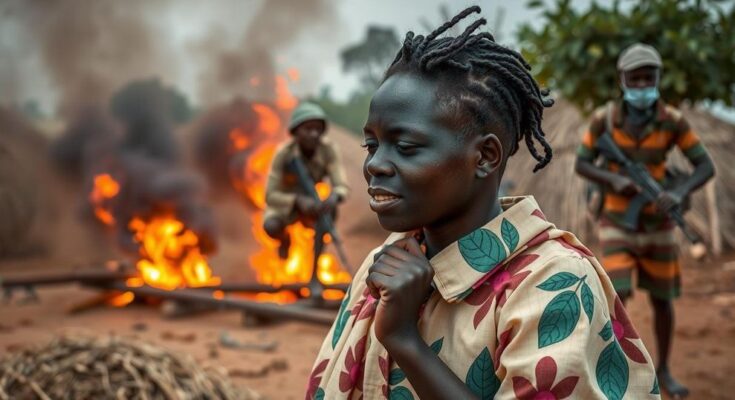A UN report indicates that communal violence in South Sudan remains a significant threat to civilians, documenting 792 victims and a rise in abductions and sexual violence incidents from July to September 2024. Despite a decrease in violent incidents, the overall toll on civilians increased, calling for urgent actions from authorities to ensure peace and accountability.
The ongoing communal violence in South Sudan has been identified as the leading cause of conflict, creating severe hardships for civilians, according to a recent report from the UN mission in the country (UNMISS). Between July and September 2024, the UNMISS human rights division recorded 206 incidents that impacted 792 civilians. The report detailed the fatalities and injuries, noting 299 deaths, 310 injuries, 151 abductions, and 32 incidents of sexual violence associated with the conflict. Alarmingly, these numbers represent a notable increase in total victims despite a decrease in the overall number of violent incidents compared to the previous year.
Specifically, the total number of civilian casualties rose by 24 percent from 641 in the prior reporting period to 792, despite a 4 percent decrease in incidents from 215 to 206. The report also highlights a 7 percent decline in the deaths reported, while the number of injured civilians surged by 34 percent. Additionally, cases involving abductions and sexual violence against civilians are on the rise, warranting urgent attention.
On a brighter note, a significant downturn in violent incidents was observed when comparing the latest figures to earlier this year, with a 35 percent reduction and a 25 percent decrease in civilian casualties. Although Warrap State experienced the highest number of casualties across the periods, Central Equatoria State was notably affected, accounting for the majority of abductions.
Emerging tensions between government forces and National Salvation Front (NAS) splinter groups pose ongoing threats to civilian safety, complicating the security landscape despite the existence of a Cessation of Hostilities agreement. Amid these challenges, Nicholas Haysom, head of UNMISS, emphasized the need for collective efforts among national leaders to address the root causes of this turmoil and achieve sustainable peace. He underscored the necessity for the government to investigate and hold accountable those responsible for human rights violations.
The context surrounding communal violence in South Sudan pertains to long-standing grievances among various groups exacerbated by political tensions and conflicts. The UN mission in the country, UNMISS, plays a critical role in monitoring human rights, supporting peace, and providing security to vulnerable populations. The situation has seen fluctuations in violence levels, with certain areas experiencing more severe impacts. The dynamics of local and national politics also significantly influence incidents of violence and overall community safety, necessitating joint efforts by different stakeholders to foster stability and mitigate conflict.
In summary, the UNMISS report underscores the persistent and worsening impact of communal violence in South Sudan, marked by significant civilian casualties and escalating acts of abduction and sexual violence. While there has been a recorded drop in violent incidents and civilian deaths compared to earlier periods, the rise in injuries and crimes against civilians highlights the urgent need for concerted action by national and local authorities to address these complexities. Initiatives aimed at peacekeeping, dialogue, and human rights advocacy remain vital for fostering sustainable peace in the region.
Original Source: sudantribune.com




